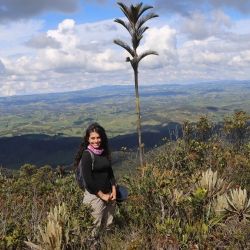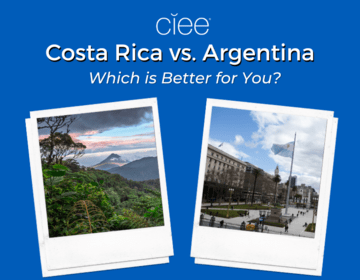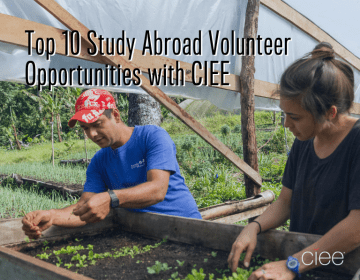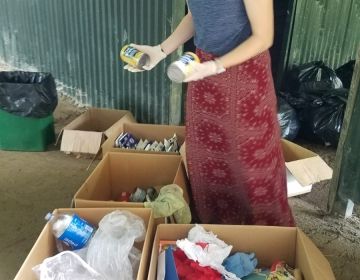The Role of Businesses in Promoting the Local Food System and Sustainability in Monteverde.
Written by Shannon Taylor, University of Maryland. Internship on Sustainability and the Environment
Over the past 4 weeks, I have been working alongside other community organizations in Monteverde: CORCLIMA, a climate change resilience commission focused on reducing carbon emissions and making the Monteverde District in Costa Rica more resilient to climate change; the Monteverde Institute, a local non-profit organization; and the Belmar Hotel, in working towards the ultimate goal of building a local directory of food producers (a phone application) in the Monteverde Zone. I created a recommendation brief based on a survey I created and implemented to assess the perspective of local businesses about their food buying habits and what they would like to see in a directory of local food producers. By promoting local food consumption, we hope to change the economy of Monteverde from one focused on the mass export and import of food products to one focused on local food production and consumption. This will work to lower Monteverde’s overall contribution to Climate Change. Food transportation contributes large amounts of CO2 to global greenhouse gas emissions, and the less food has to move, both from country to country, and around Costa Rica itself, the better for the future of climate change.
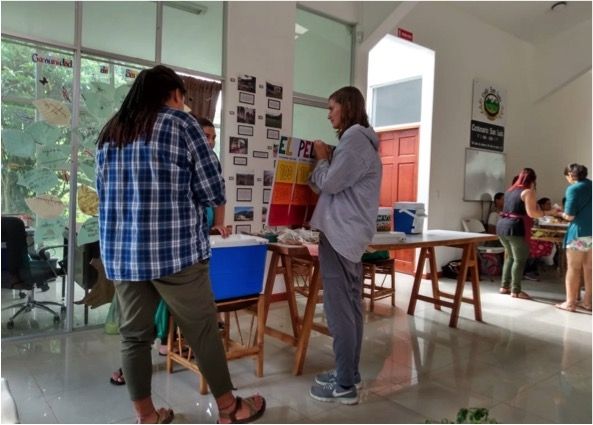
I was interested in this internship because I believe that a move away from industrialized, globalized food production towards decentralized local production is the key to a sustainable future. Local food production is not only environmentally more sustainable but also can provide economic sustainability for communities in lower-income countries, such as Costa Rica. I also highly believe in the power of grassroots, community based environmental change. This internship allowed me to work on community-based research: something I would be interested in pursuing in my future career.
Through this internship, and the guidance of my supervisor Allison Cantor, I was able to develop many important, and some unexpected skills. I learned how to create and implement a standardized survey, analyze data using descriptive statistics, and got further experience writing a research report. The unexpected benefits came, however, from bettering my Spanish by giving surveys to local businesses in Spanish and increasing my confidence in surveying people I’ve never met before. I learned to watch out for the little quirks and idiosyncrasies of those I’m interviewing and use those to better understand people’s responses to my questions and where they might be coming from.
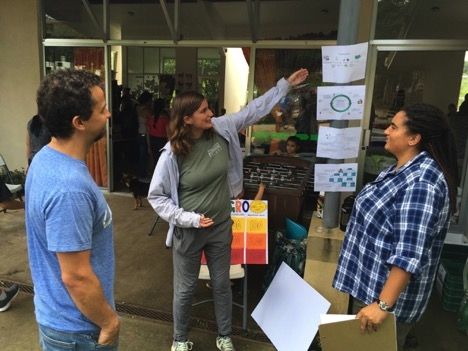
I am excited to have my work contribute to a larger project. I have been able to send my recommendation to the staff at Corclima and the Monteverde Institute, who will be able to utilize my results in the creation of a directory of local food producers. This directory will hopefully usher in a new circular economy into the Monteverde area. A quick definition of a circular economy is: as an economy that “turn goods that are at the end of their service life into resources for others, closing loops in industrial ecosystems and minimizing waste” (Stahel, 2016). A circular economy is more sustainable then the linear economy Monteverde currently has
Related Posts
Costa Rica vs. Argentina: Which is Better for Study Abroad?
Imagine yourself sipping mate in a bustling Buenos Aires café or lounging peacefully in a hammock overlooking Costa Rica's lush rainforests. These contrasting scenes represent just a glimpse of the... keep reading
Top 10 Study Abroad Volunteer Opportunities with CIEE
Have you ever wondered if you could volunteer abroad? Perhaps you're looking into study abroad programs that provide international volunteer opportunities. If you’re itching to study abroad and truly make... keep reading
Recycling Internship with ADI San Luis
Written by Maya Peske (Cornell College), Internship in Sustainability and the Environment The road from San Luis up to Monteverde is well known by all of the people in the... keep reading

